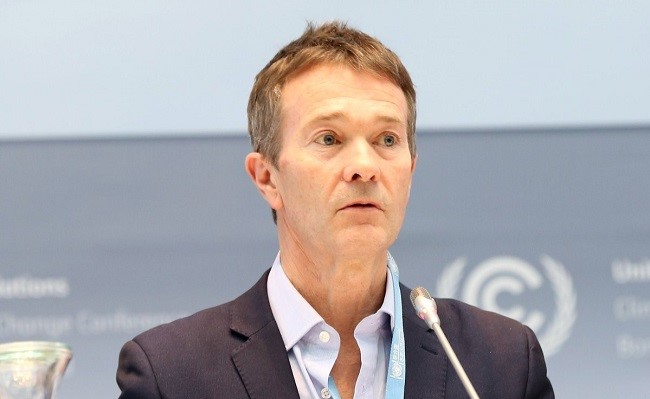Heat-trapping emissions from buildings and construction appear to have peaked at a global level, the United Nations said on Friday, December 7, 2018.

This is a trend that could encourage countries to take up the issue more aggressively as a way of curbing climate change.
Greenhouse gas emissions have been attributed to buildings levelled off over 2015-2017.
However, they still represent about a third of the global emissions that cause climate change, a report by UN Environment and its partners said.
The finding is a rare bright spot amid a spate of warnings that not enough is being done to stop the planet heating up.
Global carbon emissions are set to rise nearly three per cent this year due to continued fossil fuel use, scientists said this week.
The statement dashes hope that an increase in 2017 was temporary after two years of slowdown.
The UN Environment report called for more pledges to make building construction greener, in national climate action plans submitted for the 2015 Paris Agreement to curb climate change.
“It’s a very complex field, but one that’s absolutely critical,” Nick Nuttall, a UN Environment spokesman told reporters on the sidelines of U.N. climate talks in Poland.
Delegates from more than 190 nations’ party to the Paris Agreement are gathered in the Polish city of Katowice to meet an end-of-year deadline to agree rules on how to enforce the pact.
The “rule book”, as it is known, is expected to include details about how countries will report and monitor curbs on greenhouse gas emissions and strengthen their national plans.
A positive outcome at the negotiations could encourage governments to double down on promises to cut emissions from the construction industry, said Nuttall.
“That might increase the enthusiasm of nations to revise their (action plans),” he said.
“If they’re revised upwards to include the building and construction sector, then what happens here will have a very strong impact on the sector being able to move forward faster.”
To encourage energy-efficient buildings, the national plans could push for better insulation and windows by aspiring to revamp building codes and set up energy certification schemes.
They could also plan to lower emissions from common building materials like cement and steel whose manufacturing generates large amounts of carbon, the report said.
Even if such rules require consumers to open their wallets to retrofit a home, for example.
It is unlikely to cause the kind of public anger seen recently in France over fuel taxes, said Jennifer Layke, global director for energy with the Washington-based World Resources Institute.
Higher fuel taxes proposed by French President Emmanuel Macron to fight climate change have stoked violent protests in the European nation, forcing the government to shelve the plan this week.
“If you told everyone they had to spend 1,000 dollars next month to renovate their home, you would see a backlash,” said Layke.
But most countries had “proven strategies” to help consumers shoulder the costs, such as financing or rebates, she said.
In June, the European Union gave its member states 20 months to put into law a goal to dramatically increase the energy efficiency of buildings by 2050.
